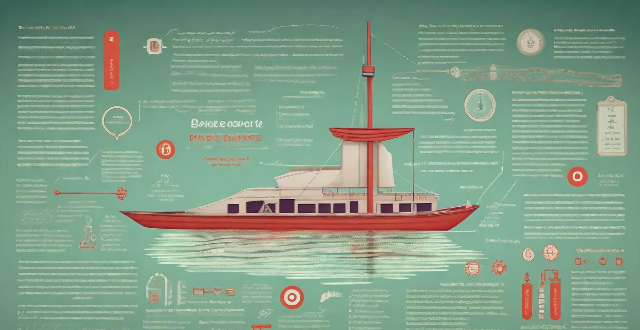Savings Expenses

How can I create a successful savings plan ?
Creating a successful savings plan is essential for achieving financial goals, such as saving for a down payment, retirement, or an emergency fund. The steps to create a successful savings plan include setting clear financial goals, analyzing the current financial situation, establishing a budget, automating savings, choosing the right tools, monitoring and adjusting the plan, and seeking professional advice. Consistency and perseverance are key to success in sticking to the plan.

How do I manage unexpected expenses within my budget ?
Unexpected expenses can be managed within your budget by establishing an emergency fund, reviewing and adjusting your budget, prioritizing expenses, considering short-term solutions, negotiating and seeking assistance, avoiding taking on debt, planning for future expenses, and staying vigilant with your budget. Start small with saving for emergencies, identify non-essential expenses to cut back on, prioritize essential expenses, consider side hustles or selling unused items for extra income, negotiate bills and seek assistance when needed, avoid high-interest loans, learn from past experiences to anticipate future expenses, and regularly review and adjust your budget as circumstances change.

How much money do I need to save for retirement ?
Planning for retirement is crucial to ensure a comfortable life after stopping work. The amount of money needed depends on factors like age, expected retirement age, lifestyle, and expenses. This guide helps calculate your retirement savings goal by determining your retirement age, assessing your financial situation, estimating retirement expenses, using retirement calculators, considering inflation and investment returns, and creating a savings plan. By doing so, you can work towards a comfortable and secure retirement.

Can waste reduction lead to cost savings for individuals and companies ?
Waste reduction can lead to cost savings for both individuals and companies by minimizing waste in various aspects of daily life and business operations. For individuals, reducing food waste through meal planning and proper storage, minimizing energy consumption with energy-efficient appliances and water conservation, and reducing unnecessary spending through secondhand shopping and repairing instead of replacing can result in significant cost savings. Companies can also benefit from waste reduction by optimizing production processes with lean manufacturing techniques and resource recovery, improving logistics and supply chain management through just-in-time inventory and efficient packaging, and enhancing energy efficiency with green building design and employee training. Overall, waste reduction is a crucial aspect of sustainable living and business practices that can lead to cost savings while contributing to environmental sustainability.

How do smart thermostats contribute to energy savings ?
Smart thermostats contribute to energy savings through automatic temperature control, energy-saving modes, learning capabilities, remote access and control, reporting and analytics, and integration with other smart devices. These features help reduce unnecessary energy usage and optimize HVAC system performance, leading to cost savings on utility bills without sacrificing comfort.

How can I prioritize my educational expenses within my budget plan ?
To effectively prioritize educational expenses within a budget plan, start by identifying clear educational goals and assessing available resources such as scholarships and savings. Create a detailed budget outlining all expected costs, including tuition, books, and transportation. Evaluate each expense based on its cost versus the benefits it provides towards your goals. If necessary, set up a savings plan to cover any shortfalls in your budget. Regularly track your spending and adjust your budget as needed to stay on track financially while achieving your educational objectives.

How can I maximize my savings during a shopping festival ?
Shopping festivals are a great opportunity to save money on your purchases. Here are some tips to help you maximize your savings: - Make a list of items you need before the festival starts to avoid impulse purchases. - Research prices beforehand to find the best deals. - Use coupons and promo codes to save money on your purchases. - Shop online for exclusive discounts and free shipping. - Buy in bulk if you know you will use an item frequently. - Take advantage of cashback offers from credit cards. - Don't forget to factor in taxes when calculating your savings.

What are some tips for managing an education budget effectively ?
The article provides effective tips for managing an education budget, including creating a budget plan, tracking spending, looking for scholarships and grants, considering part-time work or freelancing, reducing unnecessary expenses, and planning ahead for future expenses. It emphasizes the importance of staying organized, prioritizing expenses, and seeking out funding opportunities to ensure that students have the resources they need to succeed in their academic pursuits.

What is the relationship between energy-efficient appliances and overall energy savings ?
The text discusses the connection between energy-efficient appliances and overall energy savings, defining such appliances as those engineered to meet specific efficiency standards. These devices reduce direct energy consumption through lower power requirements and advanced technology, leading to long-term cost benefits and environmental advantages like reduced greenhouse gas emissions. To maximize savings, consumers should research and maintain these appliances properly and replace older models. The relationship underscores the importance of energy-efficient appliances in achieving energy savings for a more sustainable future.

How can I create an effective education budget plan ?
Creating an effective education budget plan involves identifying educational goals, determining expenses, evaluating financial resources, creating a budget timeline, tracking spending, and reviewing and revising the budget regularly. This process helps ensure that you have the necessary funds to cover your educational expenses while achieving your academic objectives responsibly.

Is it possible to lower my monthly utility expenses without sacrificing comfort ?
Yes, it is definitely possible to reduce your monthly utility expenses without compromising your comfort. Here are some tips and strategies that you can implement: - **Energy-efficient appliances**: Replace old appliances with energy-efficient models to save on electricity bills. - **Thermostat settings**: Adjust your thermostat settings to save money on heating and cooling. - **Lighting**: Use LED bulbs to use less energy and last longer than traditional incandescent bulbs. - **Water usage**: Fix leaks to save on your water bill. - **Insulation**: Improve insulation to keep your home warm in winter and cool in summer, reducing the need for heating and cooling. - **Unplug electronics**: Unplug electronics when not in use to save on your electricity bill. - **Shop around**: Shop around for better deals on your utilities. - **Be mindful of usage**: Be aware of how much water, gas, and electricity you're using to identify areas where you can cut back.

How can I protect my retirement savings from inflation ?
Inflation can significantly erode the value of retirement savings over time. To protect your nest egg, consider diversifying your portfolio with stocks, real estate, and commodities. Investing in inflation-protected securities (TIPS) and fixed index annuities can also help maintain purchasing power. Global diversification, particularly in emerging markets, offers growth opportunities and hedges against local economic conditions. Maintaining a cash reserve for liquidity and short-term needs is crucial, as is regularly rebalancing your portfolio to stay on track with your goals. Delaying Social Security benefits can lead to higher monthly payments, acting as longevity insurance. Increasing contributions, especially if matched by employers, and working with a financial advisor for personalized guidance are other effective strategies. By employing these tactics, you can safeguard your retirement savings from inflation and ensure a comfortable retirement.

How much should I be saving each month ?
Saving money is crucial for financial planning, but determining how much to save monthly can be challenging. Factors to consider include income, expenses, debts, goals, and lifestyle preferences. It's generally recommended to save at least 20% of your income, prioritize paying off debts, allocate savings towards short-term and long-term goals, and adjust based on lifestyle choices. By creating a personalized savings plan, you can work towards achieving your financial objectives and securing your future.

Is it worth subscribing to a membership program for additional savings at a particular store ?
This article explores the pros and cons of joining a membership program at a particular store, including additional savings, early access to sales and products, loyalty rewards, annual fees, limited selection, and privacy concerns. It concludes that while subscribing to a membership program can provide benefits, it's important to weigh the pros and cons before making a decision.

What are some common mistakes people make when trying to save money ?
Saving money is a crucial aspect of financial planning, but it's not always easy. Many people struggle with saving money and often make some common mistakes that can hinder their progress. Here are some of the most frequent errors people commit when trying to save money: Not having a clear savings goal, underestimating expenses or overestimating income, impulse buying, not taking advantage of discounts and deals, not automating savings, spending on depreciating assets, not reviewing banking and service providers, and ignoring the power of compound interest. By avoiding these common pitfalls, individuals can make substantial progress in their savings journey and achieve their financial goals more efficiently.

How do I teach my children about saving money ?
Teaching children about saving money is a vital life skill that can benefit them throughout their lives. Here are some effective strategies to help your kids learn the value of saving: 1. Start early by introducing the concept of money and using visual aids like charts or piggy banks. 2. Set an example by demonstrating responsible financial behavior and sharing your own experiences with saving. 3. Make it fun by creating games that teach children about earning and saving money, and offering small rewards for reaching savings goals. 4. Encourage earning by encouraging part-time jobs or chores around the house, and teaching them about allowances. 5. Set goals together by establishing specific savings goals and tracking progress towards these goals. 6. Teach them about budgeting by explaining its importance and practicing budgeting together. 7. Introduce them to banking by opening a savings account for your child and explaining how interest works. 8. Discuss long-term goals like college tuition or car payments, and encourage long-term saving. 9. Teach them about credit by explaining what credit cards are and how they work, including the dangers of overspending. 10. Foster independence by encouraging financial independence and providing support as needed.

How do I allocate funds for different educational needs in my budget plan ?
Education is crucial for personal growth, and budgeting for it is essential. Here's how to allocate funds effectively: determine goals, assess finances, create an education fund, prioritize expenses, use a budgeting tool, cut unnecessary expenses, seek financial aid, consider part-time work, and reevaluate regularly.

How long does it take to achieve financial freedom ?
Achieving financial freedom is a goal many people strive for, but the time it takes varies based on individual circumstances, habits, and market conditions. Factors influencing the journey include initial financial standing, income level and consistency, lifestyle and expenses, investment choices and returns, and economic and market conditions. Strategies to potentially shorten the timeline include increasing income, reducing expenses, investing wisely, managing debt, and planning for retirement. The path to financial freedom is unique for each person, but understanding the factors and using effective strategies can help anyone work towards achieving financial independence more efficiently.

What are the best practices for teaching children about money management and savings ?
Teaching children about money management and savings is an essential life skill that can help them develop good financial habits. Here are some best practices for teaching children about money management: 1. Start early: Even toddlers can understand basic concepts like saving and spending. Use everyday opportunities to talk about money and its value. 2. Lead by example: Children learn by example, so it's important to model good financial habits yourself. Show them how you budget, save, and make decisions about spending. 3. Use allowances wisely: Giving your child an allowance is a great way to teach them about money management. Encourage saving, teach spending, and introduce giving as part of their allowance. 4. Play money games: Board games and online games can be fun and educational at the same time. Some popular ones include Monopoly, The Game of Life, and PiggyBot. 5. Involve them in family finances: Involving your children in family finances can help them understand the real-world implications of money management. Have them help you create a budget, go grocery shopping with you, and talk to them about bills and expenses. Remember to be patient, consistent, and positive when teaching children about money management and savings. With these best practices, your child will develop good financial habits that will serve them well throughout their life.

What are the advantages of using a cashback website for shopping ?
Cashback websites offer several advantages to shoppers, including savings, convenience, flexibility, user-friendly interface, security, and extra perks like sign-up bonuses and loyalty programs. These benefits can result in significant savings over time while providing a convenient and secure shopping experience.

How do I manage debt effectively and pay it off quickly ?
Managing debt effectively and paying it off quickly requires a combination of discipline, strategy, and sometimes professional advice. Here are some steps you can take to get started: ### Assess Your Debt Situation - **Understand Your Debts**: List all your debts and identify high-interest debts. - **Determine Your Budget**: Calculate your monthly income and evaluate your expenses. ### Create a Debt Repayment Plan - **Choose a Repayment Method**: Avalanche or Snowball method. - **Make a Budget and Stick to It**: Allocate more funds to debt repayment and adjust as needed. - **Consider Refinancing Options**: Consolidate debts or negotiate with creditors. ### Implement Additional Strategies - **Increase Your Income**: Take on additional work or sell unwanted items. - **Reduce Your Expenses**: Cut out luxury spending and shop smarter. - **Improve Your Credit Score**: Pay on time and monitor your credit report. ### Seek Professional Advice if Needed - **Consult a Financial Advisor**: Personalized advice and debt management plans. - **Consider Debt Counseling**: Nonprofit credit counseling and beware of scams. Consistency and perseverance are key in paying off debt quickly.

Is it worth buying electronics at duty-free shops ?
When considering buying electronics at duty-free shops, one must weigh the pros and cons. Tax benefits can save money, but price comparison is crucial to ensure real savings. Product availability may be limited, and warranty and support validity in your home country should be checked. Return policies are stricter, and additional costs like baggage fees and customs charges may apply. Convenience is a significant advantage for immediate needs, but currency exchange rates can impact savings. Evaluate all these factors before deciding to buy.

How much does it cost to go to an idol concert ?
Attending an idol concert can be costly due to various factors such as ticket prices, travel expenses, merchandise costs, and additional fees. To manage these expenses, it's recommended to set a budget, compare prices, take advantage of group discounts, bring your own snacks, and consider the resale market for tickets.

What are the tax implications of receiving a scholarship ?
Receiving a scholarship can offset higher education costs, but understanding the tax implications is crucial. Scholarships for tuition, fees, and educational expenses are typically non-taxable, but those covering personal expenses may be taxed. Accurate record-keeping, separating expenses, consulting tax professionals, and planning ahead are key to managing these implications effectively.

Are there alternatives to taking out a student loan for college expenses ?
There are several alternatives to student loans for covering college expenses, including scholarships and grants, work-study programs, employer tuition assistance, military benefits, and crowdfunding and community support. Scholarships and grants are typically awarded based on academic merit or financial need, while work-study programs allow students to earn money through part-time jobs. Employer tuition assistance programs may cover all or a portion of tuition costs, and serving in the military can provide access to educational benefits like the GI Bill. Crowdfunding platforms and community organizations can also provide financial support for students in need.

What are the benefits of energy-efficient buildings ?
Energy-efficient buildings offer numerous benefits, including environmental advantages like reduced greenhouse gas emissions and conservation of natural resources, economic savings such as lower energy bills and increased property value, health improvements through better indoor comfort and air quality, and social effects like job creation and community standards. These buildings are a smart investment that provide long-term savings and promote a greener planet.

What are some common pitfalls when creating a household budget ?
When creating a household budget, people often fall intoWhen creating a household budget, people often fall into can lead to financial difficulties and people often fall into common pitfalls that can lead to financial difficulties and make it harder to achieve financial goals. These pitfalls include not tracking expenses, underestimating expenses, ignoring debt repayment, failing to plan for emergencies, and overspending on non-essentials. To avoid these mistakes, people should keep track of all expenses, be realistic when estimating expenses, prioritize paying off high-interest debt, set aside money for emergencies, and limit discretionary spending. By avoiding these pitfalls, people can create a budget that works for them and helps them achieve their financial goals.

How can I stick to my budget without feeling deprived ?
Sticking to a budget is easier when you don't feel deprived. Here's how to do it: 1. **Set Realistic Goals**: Break down your financial goals into smaller, more manageable ones and make them specific and measurable. 2. **Prioritize Your Expenses**: Categorize your expenses into essential and non-essential, and differentiate between needs and wants. 3. **Find Alternatives**: Consider DIY projects and buying used items instead of new ones to save money. 4. **Track Your Spending**: Use budgeting apps or visual aids to monitor your expenses and progress toward your financial goals. 5. **Reward Yourself**: Allow yourself small treats for sticking to your budget and plan larger rewards for achieving long-term financial goals. 6. **Stay Motivated**: Keep reminders of your financial goals visible and share your goals with friends or family members who can provide support.

What are some tips for maximizing savings with online shopping coupons ?
Maximizing Savings with Online Shopping Coupons: Tips and Strategies Online shopping has become an integral part of our lives, and using coupons can help us save a significant amount of money. Here are some tips for maximizing savings with online shopping coupons: 1. Sign up for Newsletters: Many online stores offer exclusive discounts and coupon codes to their newsletter subscribers. Sign up for the newsletters of your favorite stores to receive updates on the latest deals and promotions. 2. Use Multiple Coupon Codes: Some online stores allow you to use multiple coupon codes in a single transaction. Try combining different coupon codes to maximize your savings. For example, you can use a discount code for a percentage off your purchase and another code for free shipping. 3. Check for Store-Specific Discounts: Some online stores offer store-specific discounts that can be applied to your purchase. Check the store's website or contact customer support to find out if there are any available discounts. 4. Shop During Sales and Promotions: Keep an eye out for sales and promotions offered by online stores. Many stores offer discounts during holidays, special events, or seasonal changes. You can also check websites like RetailMeNot or Honey to find current promotions and coupon codes. 5. Use Price Comparison Websites: Before making a purchase, use price comparison websites like PriceGrabber or Google Shopping to compare prices across different retailers. This can help you find the best deal and potentially save you money. 6. Look for Free Shipping Offers: Free shipping offers can save you money on your purchase. Look for online stores that offer free shipping or have a minimum purchase requirement for free shipping. You can also try using a coupon code for free shipping if it's available. 7. Stack Coupons with Cashback Offers: Some cashback websites like Rakuten or TopCashback offer additional cashback when you shop through their website. You can stack these cashback offers with coupon codes to maximize your savings. 8. Follow Social Media Accounts: Follow the social media accounts of your favorite online stores to stay updated on their latest deals and promotions. Many stores announce exclusive discounts and coupon codes on their social media platforms. 9. Join Loyalty Programs: Joining loyalty programs of online stores can provide you with exclusive discounts and rewards. These programs often offer points or rewards for every purchase made, which can be redeemed for future purchases or discounts. 10. Be Patient: Sometimes, waiting for the right moment to make a purchase can lead to bigger savings. Keep an eye out for upcoming sales or promotions, and hold off on making a purchase until you find the best deal.

How can I maximize my savings with store loyalty programs ?
Maximizing Savings with Store Loyalty Programs: - Sign up for the program to earn points, get exclusive discounts, and personalized offers. - Use the program every time you shop to accumulate points faster. - Understand the rewards system, including point expiration and reward restrictions. - Take advantage of bonus offers to earn additional rewards. - Stack promotions and discounts to save more money. - Track your rewards and their expiration dates to ensure you use them before they expire.